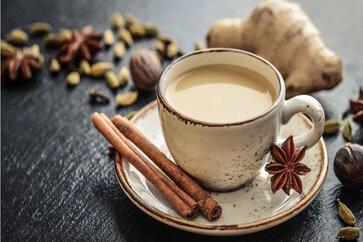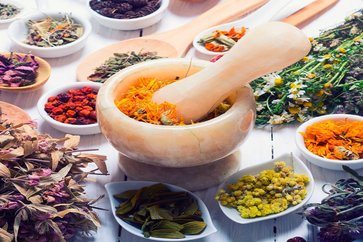Ayurvedic Lifestyle Changes for Anxiety and Depression
Ayurveda emphasizes the interconnectedness of the mind, body, and emotions. It views emotional well-being as vital to overall health, where mental states like stress, anxiety, and depression are seen as manifestations of imbalances in the body and mind.
The dosha system, which categorizes people into three primary energy types (Vata, Pitta, and Kapha), helps understand how these imbalances arise and affect a person’s emotional and physical state.
For instance, Vata imbalances may lead to anxiety, while Pitta imbalances can contribute to irritability or anger. Restoring balance through Ayurvedic practices can alleviate these emotional disturbances.
Importance of lifestyle changes in managing anxiety and depression
In Ayurveda, mental health issues such as anxiety and depression are often treated through holistic lifestyle changes rather than relying solely on medication.
This approach incorporates dietary adjustments, exercise, sleep hygiene, stress reduction techniques, and mindfulness practices to restore harmony within the body and mind.
Lifestyle changes are tailored to the individual’s unique constitution and current state of imbalance, allowing for sustainable and long-term healing.
By aligning one’s lifestyle with Ayurvedic principles, individuals can cultivate emotional stability, enhance resilience, and promote mental well-being.
Understanding Anxiety and Depression in Ayurveda
1. Concept of Mental Health in Ayurveda (Manasika Roga)
In Ayurveda, mental health (Manasika Roga) is closely linked to physical health. Emotional disorders like anxiety and depression arise from imbalances in the mind-body system, where the mind’s qualities affect mental well-being.
Ayurveda believes that mental disturbances are not isolated but are deeply connected to the body’s constitution and physical state. Balancing the mind is key to restoring overall health.
2.Role of the Three Doshas (Vata, Pitta, Kapha) in Emotional Balance
The three doshas—Vata, Pitta, and Kapha—govern both physical and emotional health:
- Vata (air/ether): Governs movement and the nervous system; imbalance leads to anxiety, restlessness, and fear. A disturbed Vata can cause overwhelming thoughts and a scattered mind, creating emotional instability.
- Pitta (fire/water): Governs digestion and transformation; imbalance leads to anger, irritability, and frustration. When Pitta is excessive, it can cause emotional burnout and a tendency towards perfectionism.
- Kapha (earth/water): Governs stability and immunity; imbalance leads to sadness, lethargy, and depression. When out of balance, Kapha can create feelings of heaviness, attachment, and an inability to move forward emotionally.
3. Imbalance of Vata Dosha as a Primary Cause of Anxiety and Depression
Vata imbalances, which affect the nervous system, are often the primary cause of anxiety and depression in Ayurveda. When Vata is disturbed, it leads to restlessness, fear, and erratic thoughts, causing emotional instability. Vata’s qualities—dry, light, and cold—make it harder to feel grounded, resulting in feelings of disconnection and sadness. Restoring balance to Vata through grounding practices, proper diet, and relaxation can help calm the mind and alleviate these emotional disturbances.
Ayurvedic Principles for Mental Well-being
1. Importance of Dinacharya (Daily Routine)
In Ayurveda, a consistent daily routine (Dinacharya) is essential for mental well-being. Following a regular schedule helps balance the doshas, supports the body’s natural rhythms, and reduces stress.
A routine that includes waking up early, practicing meditation, eating at regular intervals, and prioritizing rest stabilizes the mind and promotes emotional balance.
By aligning with natural cycles, Dinacharya helps prevent mental disturbances like anxiety and depression.
2. Role of Ritucharya (Seasonal Routine)
Ritucharya refers to adapting one’s lifestyle according to the changing seasons to maintain balance. Each season affects the doshas differently, and adjusting diet, exercise, and daily activities can help prevent seasonal imbalances.
For example, during the cold Vata season, grounding practices and warm foods are emphasized to counteract the dry, light qualities of Vata.
Seasonal adjustments allow the mind and body to stay in harmony throughout the year, supporting emotional stability.
3. Balancing Agni (Digestive Fire) for Mental Clarity
In Ayurveda, Agni (digestive fire) is crucial for both physical and mental health. A strong Agni ensures proper digestion, absorption, and elimination, while a weak Agni leads to toxins (ama) that can cloud the mind.
Mental clarity and emotional stability are directly linked to a well-functioning digestive system. By eating balanced meals, avoiding overeating, and using digestive herbs, Agni can be maintained, supporting clear thinking and emotional resilience.
Ayurvedic Practices for Managing Anxiety and Depression
1. Dietary Adjustments
- Foods to pacify Vata dosha: Warm, nourishing, and grounding foods, such as soups, stews, cooked vegetables, and whole grains, help calm Vata, promoting emotional stability.
- Avoidance of stimulants: Caffeine, processed foods, and alcohol should be minimized as they can aggravate Vata, leading to anxiety and restlessness.
- Incorporating calming herbs and spices: Ashwagandha, brahmi, turmeric, and cardamom help reduce stress and anxiety, supporting a calm mind and overall emotional balance.
2. Daily Routine (Dinacharya)
- Waking up early (Brahma Muhurta): Waking up before dawn helps balance the mind and set a peaceful tone for the day.
- Oil massage (Abhyanga): Regular self-massage with warm oils grounds Vata, promoting relaxation and reducing mental stress.
- Meditation and Pranayama: Breathing exercises and meditation calm the nervous system, reduce anxiety, and improve mental clarity.
- Regular sleep schedule: Maintaining a consistent sleep routine supports hormonal balance, improving mood and energy levels.
3. Physical Activity
- Gentle yoga asanas: Poses like Child’s Pose, Forward Bend, and Corpse Pose are calming and help release mental tension.
- Walking in nature: A gentle walk outdoors helps ground excessive Vata and reconnects the individual to the earth, fostering mental peace.
- Avoiding overexertion: High-intensity workouts can aggravate Vata, so moderate exercise is recommended for mental balance.
4. Mindfulness and Emotional Practices
- Practicing gratitude and positive affirmations: Focusing on gratitude helps shift the mind away from negative thoughts and fosters emotional resilience.
- Journaling: Writing can help release pent-up emotions, providing clarity and emotional release.
- Engaging in creative activities: Activities like painting, singing, or dancing help balance the mind, offering a positive outlet for emotional expression.
Ayurvedic Herbs for Anxiety and Depression
Ayurveda, the traditional system of medicine from India, offers various herbs that can help manage anxiety and depression.
These herbs are often used in combination with lifestyle changes and diet adjustments. Here are some Ayurvedic herbs commonly used for anxiety and depression:
1. Ashwagandha (Withania somnifera): Known as a powerful adaptogen, Ashwagandha helps the body cope with stress. It is believed to balance cortisol levels, which is helpful for anxiety and depression. It also promotes overall mental clarity and relaxation.
2. Brahmi (Bacopa monnieri): This herb is widely used for improving cognitive function, memory, and mental clarity. It is also known to reduce anxiety, improve mood, and support the nervous system.
3. Tulsi (Ocimum sanctum): Also known as Holy Basil, Tulsi has been traditionally used to reduce stress and anxiety. It helps to balance the body’s response to stress and has mood-enhancing properties.
4. Jatamansi (Nardostachys jatamansi): Jatamansi is known for its calming effects. It helps to reduce nervous tension, anxiety, and stress, promoting emotional stability and restful sleep.
5. Shankhapushpi (Convolvulus pluricaulis): This herb is often used to calm the nervous system, improve mental function, and reduce anxiety. It is also known to have antidepressant properties.
6. Saffron (Crocus sativus): Known for its mood-lifting qualities, saffron has been shown to have antidepressant and anti-anxiety effects. It helps in balancing neurotransmitters like serotonin, which play a role in mood regulation.
7. Licorice (Glycyrrhiza glabra): Licorice root helps regulate cortisol levels and has a calming effect on the nervous system, which can be beneficial for those dealing with stress, anxiety, and depression.
8. Gotu Kola (Centella Asiatica): Gotu Kola is used to promote mental clarity, reduce stress, and improve cognitive function. It also has calming effects that help with anxiety.
9. Guduchi (Tinospora cordifolia): Guduchi is an immune-boosting herb that also helps in balancing emotions and reducing stress. It is often used to help with mental clarity and emotional well-being.
10. Vacha (Acorus calamus): Vacha is used to stimulate the mind and calm the nervous system. It helps in reducing anxiety and mental exhaustion.
While these herbs are commonly used in Ayurveda for managing anxiety and depression, it’s important to consult with an Ayurvedic practitioner or healthcare provider before starting any herbal treatments.
They can guide you on appropriate dosages and any potential interactions with other medications or conditions. Additionally, combining herbal remedies with lifestyle practices like meditation, yoga, and a balanced diet can enhance their effectiveness.
Ayurvedic Therapies for Anxiety and Depression
1. Shirodhara: Shirodhara involves gently pouring warm oil over the forehead to induce deep relaxation and calm the nervous system, helping relieve anxiety and emotional stress.
2. Panchakarma Detoxification: This comprehensive detox process involves cleansing the body and mind, removing accumulated toxins (ama) that contribute to emotional and physical imbalances, and supporting overall mental health.
3. Nasya (Nasal Therapy): Nasya therapy, which involves administering herbal oils through the nostrils, helps clear blockages in the sinuses and mind, enhancing mental clarity and emotional balance.
Creating a Supportive Environment
1. Surrounding Yourself with Positive Influences: Surrounding yourself with supportive, uplifting people and environments is essential for emotional well-being. Positive relationships and interactions foster a sense of security and joy, helping to reduce stress and promote mental clarity.
2. Reducing Exposure to Negative Media and Stressors: Limiting exposure to negative news, social media, or stressful situations helps maintain mental peace. Constant exposure to negativity can heighten anxiety and depression, so it’s important to curate what you consume and focus on more positive, inspiring content.
3. Incorporating Calming Elements in Your Living Space: Your environment plays a key role in emotional health. Using aromatherapy with essential oils like lavender or sandalwood, incorporating soothing colors (like soft blues and greens), and maximizing natural light can create a peaceful atmosphere that supports relaxation and emotional healing.
Additional Resources
Recommended Books on Ayurveda and Mental Health
- “The Ayurveda Encyclopedia” by Swami Sivananda
- “The Textbook of Ayurveda: Fundamental Principles” by Vasant Lad
- “Ayurveda for Mental Health” by Dr. David Frawley
These books provide in-depth insights into Ayurvedic principles for mental well-being and practical applications.
Online Resources and Courses for Deeper Learning
- Banyan Botanicals (banyanbotanicals.com) offers educational articles and resources on Ayurveda.
- The Ayurvedic Institute (ayurveda.com) provides courses and webinars on Ayurvedic medicine.
- Coursera and Udemy offer online courses on Ayurveda for mental health and holistic living.
Finding an Ayurvedic Practitioner or Wellness Center
Look for certified Ayurvedic practitioners through organizations like the National Ayurvedic Medical Association (NAMA) or local wellness centers offering Ayurvedic consultations. A trained practitioner can provide personalized guidance on managing mental health through Ayurveda.
Ayurveda offers a holistic approach to managing anxiety and depression by balancing the mind, body, and emotions. Key lifestyle changes include adopting a regular daily routine (Dinacharya), adjusting your diet to pacify Vata, incorporating calming herbs and spices

























